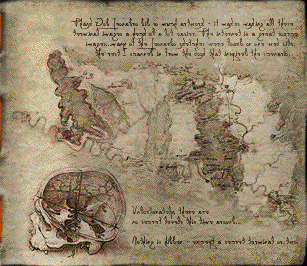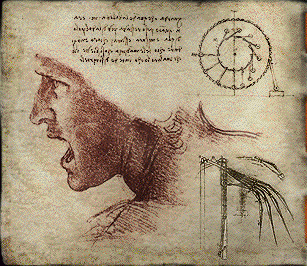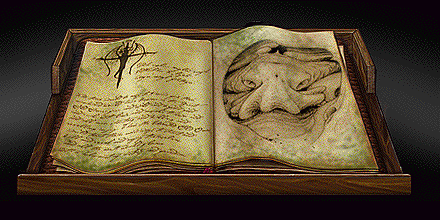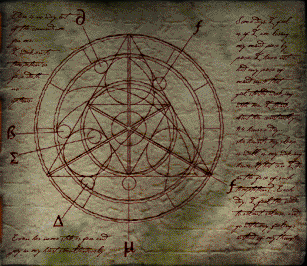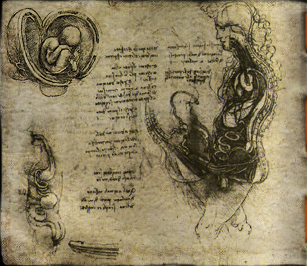
S'bhuth was unsurprised when I told him the story of the young man from Verona. S'bhuth said that, in his observations of humanity, he had seen people driven to madness by many different things: anatomical defects in the brain, traumatic experiences, or what he called 'the old ones'. S'bhuth was reluctant to explain the latter, but I pressured him into divulging at least some information.
The old ones are like S'bhuth, in that they come from another world. S'bhuth said that his kin had fought with these entities long ago, driving them out of their homeland, and as they fled, some of them settled here. This happened long before antiquity; the creatures hid themselves away in the deepest recesses of the earth and beneath the oceans.

S'bhuth explained that these entities would use humans for their own purposes, but he was unable to clearly explain how they influenced humans to do their bidding. Everything about these creatures is different; their physical nature, their mentality, their very existence functions differently than our own. When a human mind comes into contact with one of these 'old ones', the differences drive the weaker mind into madness. The weaker mind in these encounters is almost always the human one, and the young man from Verona was no exception.
I believe the best way to describe these creatures, these 'old ones' is demonic... the church views them as fallen angels, and S'bhuth views them as his enemies, banished from his homeland.

I asked S'bhuth why I myself did not go mad from my contact with him, why I only suffered a brief spell of nightmares and did not murder any scullery maids. He claimed that he had been holding his thoughts in check, in order to disturb me as little as possible. My own view is that S'bhuth and I have too much in common for me to be driven mad by contact with him, but I would fear for the sanity of any weaker mind.
At any rate, I suppose I should be grateful to S'bhuth for not driving me into madness and depravity. After all, the priests already think I am mad and depraved, and would welcome any little excuse to have me dragged to the stake and burned.

Speaking of which, shortly after I told S'bhuth the young man's sad story, he disappeared for several days. He was curiously silent when he returned, speaking only of 'servicing ancient vengance'.
Several months later, I heard that the church where the young man had been found weeping had burned to the ground, in a fire so intense that the stones themselves melted and pooled. Three priests had been killed; the cause was never found. A year later, however, the region was prospering, and the crops were growing healthy and strong after the years of drought that had plagued the areas' farms.
S'bhuth remained silent on the matter.

If you are reading this -- you, the one who recovered my own manuscripts -- leave the tome you are now carrying here in the bookshelves, nearby. The information within that tome plays a critical role in S'bhuth's future.
